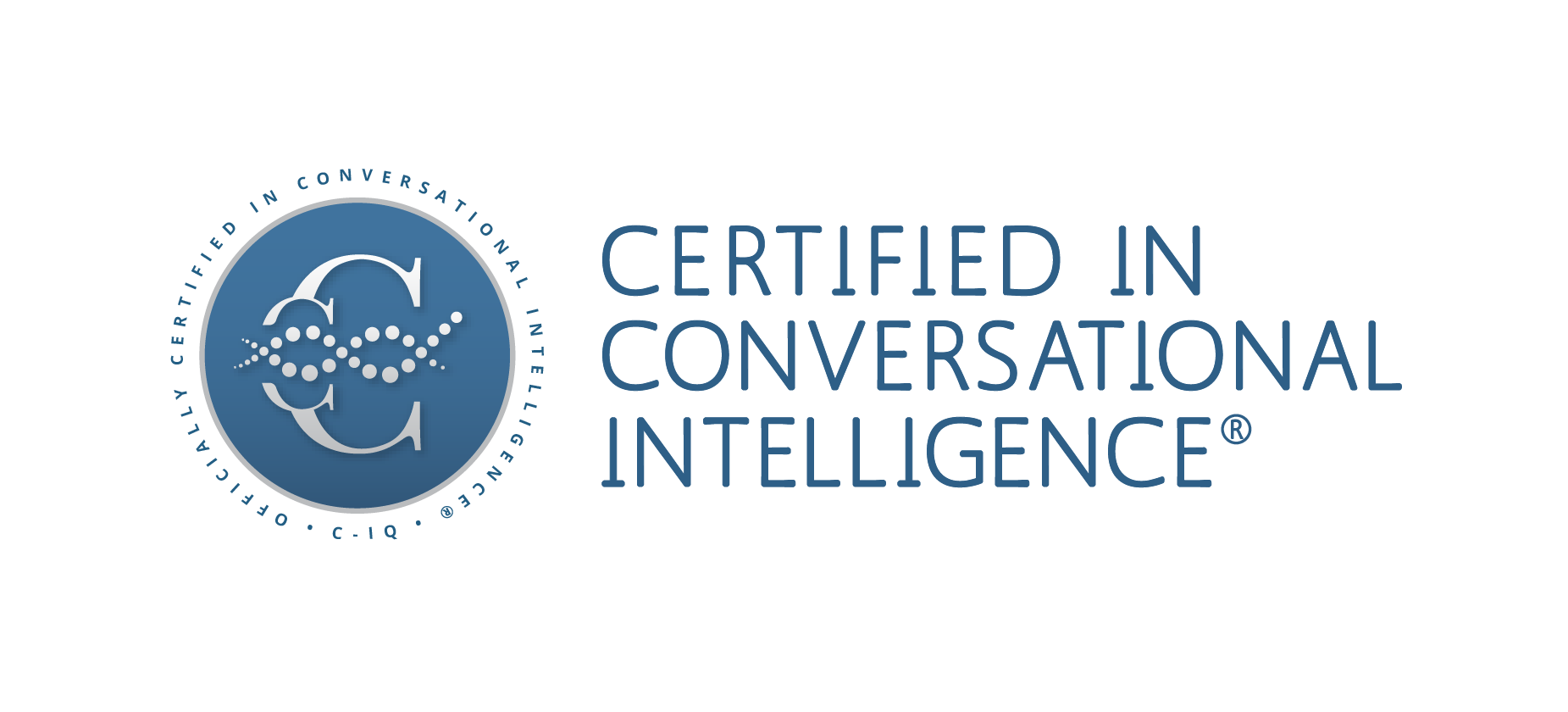It was just days before Christmas 2016 when I was rushing to submit for a grant so that I could embark on becoming a C-IQ Certified Coach with WBECS. I had watched the Conversational Intelligence Immersion trainings which are really only an introduction and was fascinated by how our brain impacts how we communicate. It was absolutely revolutionary for me to learn that if we understand how to communicate with others for trust, we can completely change the chemistry of our conversations which leads to partnering rather than protection. Perhaps it was my previous training in the biology of the body that intrigued me to this body of knowledge on the neuroscience of communication.
In January of 2017, my journey of learning C-IQ began with the incredible privilege to be mentored by Judith E Glaser PHD, the creator of C-IQ who is an organizational anthropologist. One of the first concepts we learned is that our brains are hard wired to protect us from harm and that includes even during our daily conversations as it is able to detect and respond to conversations and people with trust and distrust. Not only is it processing this information, but our brains and bodies then produce a biological response by producing chemicals of stress, cortisol, or bonding, oxytocin.
This physical response is important because if cortisol is produced and our fight or flight mode is activated, it shuts down our pre frontal cortex which is an area of the front of our brain that houses all our executive brain functions. These executive brain functions include vision, strategy, empathy, decision making, innovation, collaboration and so many more. As you can see and as Judith says, ‘Our Words Create Worlds’.
Stop and process this for a moment because what this means is that impatient conversation you had with someone at work, that criticism you shared with coworkers, and even not including people will set off a biological response in their brain and body; this then changes the complete dynamics of their interaction and engagement with you and the people around them as well as activating a stress response for them.
There were so many powerful concepts we learned including that we actually have the ability to Up-Regulate and Down-Regulate cortisol and oxytocin in our conversations and as leaders. This means there are specific communication tools that show us what will increase cortisol or the stress response of distrust as well as what to do to increase oxytocin or bonding for trust. Leaders who learn C-IQ can create entire teams and cultures of trust! And remember when there is trust, our pre frontal cortex or our executive brain functions and gives us access to all our higher brain functions.
The Growth as a Leader with C-IQ
To say learning C-IQ has shifted my entire presence, leadership, and communication style would be an under statement. Huge shifts took place in understanding the impact of my communication on others and also why I react the way I do in specific unpleasant communication encounters. C-IQ taught me a new communication leadership style that builds collaboration, connection, community, culture and trust. It has empowered me with the awareness as to why employees and clients can be so set back and shut down in working with or for someone when trust is broken. In addition, it has given me the tools to help leaders, companies, and everyone communicate in high stress or conflict situations with the goal of creating partnering.
Along my path to becoming certified I coached both individuals and companies with C-IQ. Beyond learning the concepts of C-IQ, what was most profound was putting them into practice and implementing them with clients that had clear goals to increase their communication. One of my clients who sought out my services for an intense family dynamics communication situation, experienced huge shifts in the way she was able to communicate with her family. A corporate client was able to implement specific communication strategies that increased engagement, built more connection and trust, and created a culture of collaboration and cohesion amid two very distinct teams.
I see and hear about so many company’s and corporate culture’s that need to improve their communication and could make positive progress with C-IQ. One of the interesting areas where people seek out and benefit from C-IQ is new leaders either new to a company or team or even brand new leaders who find themselves in a leadership position. The people who probably need it the most are the leaders that know everything, are always right, and either distrust others or lead with an ‘I-Centric’ focus.
Next Steps as a C-IQ Certified Coach
Now that I am officially a certified C-IQ coach, my goal is to reach the people, leaders, teams, and companies that want to develop and excel in their communication. Bringing the C-IQ tools to corporations and executives so they can create a culture of trust will also be an emphasis of mine. In addition, I have a goal to bring C-IQ to the everyday lives of people improving their personal relationships, for schools and teachers to create a positive learning environment, and for service care providers in hospitals and other professions to co-create conversations that may be difficult or high conflict. Lastly, as a women’s leadership coach, I have a goal to start and facilitate the conversation of diversity and gender equality in corporations to evoke change by using the tool of C-IQ.
If you are a leader or company seeking C-IQ to improve communication and culture and would like to learn more about our workshops and private coaching, contact me for a complimentary consultation at jody@jodykennett.ca.
Connect with me on Social
